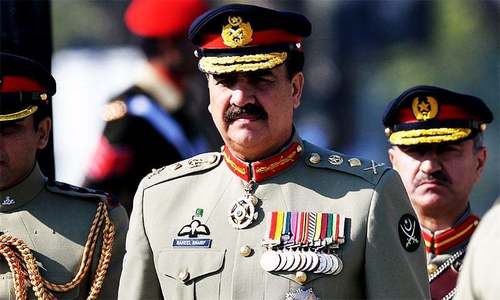ISLAMABAD: Defence Minister Khawaja Asif on Thursday assured the National Assembly that Pakistan would not become part of any alliance against a Muslim state.
Responding to a calling attention notice, he said that the terms of reference (TOR) of the Saudi-led military alliance would be unveiled by Saudi authorities next month.
He said that the TOR of the alliance, which is to be led by former Chief of the Army Staff Gen Raheel Sharif, and its aims and objectives will be presented in parliament before formally deciding whether Pakistan should become part of it or not.
“We have committed to safeguarding Saudi Arabia’s soil for the safety and sanctity of the two holy sites — Makkah and Medina — but we will not become part of any conflict against any Muslim state, including Iran,” the defence minister said, responding to the notice moved by Pakistan Tehreek-i-Insaf (PTI) MNA Dr Shireen Mazari.
Besides Ms Mazari, other PTI leaders, including Asad Umar, Ghulam Sarwar Khan, Ayesha Gulalai and Dr Arif Alvi, also spoke on the issue and expressed concern over Pakistan’s membership of the alliance without complete knowledge of its TOR, aims and objectives.
The PTI was the only party that remained vocal on the issue after the Pakistan Peoples Party (PPP) staged a walkout and no other opposition leaders spoke on the matter.
The defence minister informed the house that the Saudi government would hold a grand meeting in May, where it would unveil the TOR. “Prime Minister Nawaz Sharif and former COAS Gen Raheel Sharif will attend the event,” he said. He termed it a ‘ceremonial alliance’, saying that it could be called the Saudi Arabia or Pakistan-led alliance of 41 Muslim states, since there was an understanding between both countries that Gen Raheel Sharif would lead the alliance whenever it is formed.
He said that after the TOR was made public, the former COAS would formally apply for an NOC, required by any retired government officer if he intended to serve anywhere within two years after his retirement. “The NOC is issued to retired armed forces personnel under a laid-down procedure,” he added.
Mr Asif recalled that a joint session of parliament had unanimously passed a resolution last year on the issue of Yemen-Saudi Arabia conflict, directing that Pakistan would not join any alliance against any Muslim country. “We will follow this resolution in the case of Saudi-led alliance of Muslim states too,” he added.
“Rather, we will act as a mediator in case the alliance is used against any other Muslim country,” he assured the house.
But before he could continue, PPP’s Dr Shazia Sobia pointed out a lack of quorum, preventing the defence minister from explaining further.
Earlier, Dr Mazari asked why Pakistan was joining the alliance without knowing its TOR.
Dr Mazari was of the view that Pakistan should avoid joining any military alliance because the country had already paid a heavy price for becoming a part of past military alliances, such as the one against Russia when it tried to invade Afghanistan, or the Nato alliance in Afghanistan following the 9/11 attacks.
She said that 10 of the 41 Muslim states in the Saudi-led group had already made an alliance against Yemen. “If Pakistan joins the Saudi-led alliance, will it become a part of another alliance against Yemen or not,” she asked.
Asad Umar said that joining the Saudi-led alliance was the biggest decision taken by the government during its four-year term. “Such a big decision cannot be taken so simply,” he said, adding: “It will be unfair with the people of Pakistan if this decision is taken without taking parliament in confidence.”
Arif Alvi said Pakistan could not accept any use of Pakistani army against any other state. “It is a very dangerous matter. We should not be a part of any secret alliance,” he added.
Ghulam Sarwar Khan said Saudi Arabia was a brotherly country and Iran was not only a brotherly country, but a close neighbour as well. “We should not become a part of any move against Iran,” he said.
Published in Dawn, April 14th, 2017













































